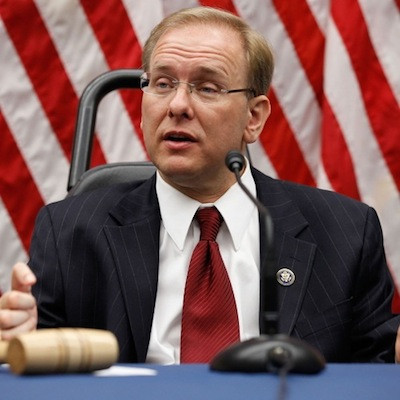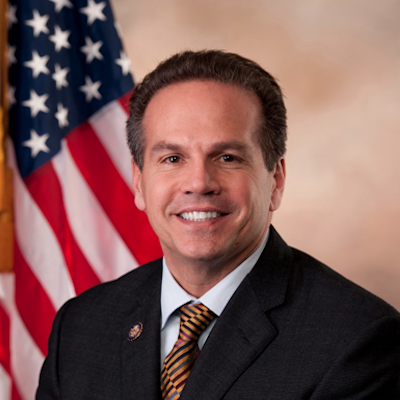Weiss: GOP Senators Avoid Angry Constituents During July Recess
Monday, July 10, 2017
With Senate Republican leadership pulling their healthcare bill, titled “Better Care Reconciliation Act of 2017,” scheduled for a vote before the Fourth of July recess, because they were unable find 50 votes, opponents continue their lobby against an anticipated rewrite of the unpopular Senate bill. Mobilization to oppose passage of a GOP health care bill began immediately after the House passed its legislation, titled “The American Health Care Act” in May.
“It is essential that all of those who oppose this dangerous bill have their voices heard,” said Richard Fiesta, Executive Director of the Alliance for Retired American, one of many aging groups mobilizing its membership during the Fourth of July recess. “The fact that most Republicans in the Senate are too afraid to show up in public should tell you everything you need to know. The Senate bill is dangerous to all Americans, particularly older Americans, and must be stopped,” he said.
Lawmakers Choose to Not Face Angry Constituents
GET THE LATEST BREAKING NEWS HERE -- SIGN UP FOR GOLOCAL FREE DAILY EBLASTThroughout the nation, thousands of constituents of GOP senators made it clear to their lawmakers returning to their home districts, “vote no on the Senate version of the healthcare bill,” that would repeal and replace President Obama’s Affordable Care Act of 2017 (ACA), popularly, called Obamacare. Opponents of Trumpcare held sit-ins (referred to as die-ins) to remind their GOP Senators that 22 million low-and medium-income Americans would lose their health coverage with the slashing of $800 billion from Medicaid, warning that there would be a significant increase in premium costs.
According to the Town Hall project, between January to May, 33 GOP senators have not held a single in-person town meeting this year, these lawmakers choosing not to face angry constituents who oppose the Senate health care bill. During this 11-day recess, most Republican senators chose not to hold town meetings, most skipping their community’s Fourth of July parades, to keep away from hostile crowds.
But, Moderate GOP Sen. Susan Collins, of Maine, appeared at Fourth of July parade in Eastport, Maine and was overwhelmingly thanked for her opposition to the Senate health bill. At the parade, the Washington Post stated that spectators urged Collin’s “to stay strong” in opposing the GOP Senate’s version of the health care bill. The Post noted that only three other Republican senators, Ted Cruz, of Texas, Dean Heller, of Nevada, and Lisa Murkowski, of Alaska, also appeared in their community’s Fourth of July parades.
Seeing the Writing on the Wall
Political reality is now setting in for Senate Majority Leader Mitch McConnell, of Kentucky, who has shifted his position on repealing Obamacare if he cannot pull the 50 votes necessary to pass his health care bill. With all Democratic and Independent senators in their caucus opposing passage of the bill, GOP Senate leadership can only afford the defection of two Republican senators if they want their bill to pass. Can he revise this legislation to satisfy the concerns of moderate and conservative members of his caucus to ensure passage?
The Washington Post reported, last Thursday, at a Kentucky Glasgow Rotary Club lunch, McConnell admitted to the attending Rotarians that Republicans would have to work with Democrats to stabilize the health insurance markets if they failed to pass the Senate bill.
As predicted with the GOP senators returning from recess, facing angry constituents, a growing number are now publicly withholding their support for the Senate bill. At press time, there have been multiple reports that ten senators are now opposing the legislation.
“There have been little to no senator-level discussions on amendments to the Senate health bill during the July recess,” says Dan Adcock, Director of Government Relations and Policy for the National Committee to Preserve Social Security and Medicare (NCPSSM). He expects more negotiations to take place when the Senate reconvenes this Monday.
Adcock says, “there would be a delay between an announced “compromise” bill and Senator floor consideration since the Congressional Budget Office would first need time to perform a cost estimate on the amended sections of the bill.”
Senator Cruz’s Fix for Senate Health Bill?
According to Adcock, that is being most talked about in the corridors of the Capitol is Sen. Ted Cruz’s proposal to replace the existing language in Senate bill -- that would allow insurance companies to pick and choose which Obamacare essential benefits they would offer -- with a plan to require that insurance carriers offer at least one plan with Obamacare essential benefits and all other plans could decide which benefits to include and exclude.
But, Adcock sees a multitude of problems with the Cruz proposal, making it difficult to be inserted into a final Senate health bill.
“First, it really is not that different from the current language that allows insurance companies to offer plans without the required ACA essential benefits,” says Adcock. “Under the Cruz proposal, healthy people would enroll in health plans that aren’t required to cover all ACA essential benefits, while sick people or enrollees with pre-existing conditions would tend to enroll in plans with all of the ACA essential benefits. As a result, the latter plans would be very expensive and unaffordable for less healthy enrollees,” he says.
Adcock estimates that Texas Senator’s proposal and the Senate health bill’s essential benefits waiver provisions would be particularly harmful to the 40 percent of enrollees age 50 to 64 who have one or more pre-existing condition.
“Second, there is a good chance that the Senate Parliamentarian will rule that the Cruz proposal violates Budget Reconciliation rules because it is superfluous to reducing federal spending,” says Adcock, noting that if this happens his proposal in the form of an amendment would face a 60-vote point of order. The Senate Republicans do not have the 60 votes they need to waive this budget rule.
Another point that is being negotiated between Senate leadership and moderate and conservative senators is provisions that would restructure federal payments to state Medicaid programs, says Adcock, noting that the Senate bill and House-passed healthcare bills would restructure the way federal funding is provided to the states – changing from the current matching rate formula to per capita caps or block grants at state option.
Medicaid Cuts Hit LTC Sector
“Per capita caps limit federal funding for state Medicaid programs to an arbitrary per beneficiary funding level. This would ultimately shift costs to states by eliminating the guarantee of additional federal funds if state costs increase because of underlying health care costs, demography or complexity of care. We are particularly concerned about how these cuts would affect Medicaid long-term care coverage – both home and community and nursing home care,” Adcock added.
Adcock also sees other negatives of the draft Senate health care bill.
“From the year 2025 on, the Senate bill bases the per capita cap on an even less generous measure than the House bill. While the House bill used a measure based on medical inflation, the Senate bill would allow Medicaid to grow only at the rate of general inflation. Medical inflation has historically grown at a higher rate than general inflation. And, even the index used in the House-passed AHCA would be unlikely to keep up with growth in health care costs,” notes Adcock.
Adcock added, “some moderate Republican senators object to linking Medicaid payments in 2025 and thereafter to general inflation. However, Sen. Pat Toomey – who drafted this provision – does not want to compromise on it.”
And, Sen.Portman and Capito also continue to express interest in increasing funding for Opioid substance abuse treatment, adds Adcock. The Senate health bill includes $2 billion for this purpose. Portman has called for $40 billion for treating Opioid addictions, he says.
With senators returning to Washington, D.C., after their roughly one-week Fourth of July recess, there are only 14 legislative working days before their month-long August recess begins on July 28 with their return Sept. 5.
Recently, ten Senate Republicans have called on Senate Majority Leader McConnell to cancel the upcoming August recess to allow them to focus on five priorities: fixing health care, funding the federal government by Oct.1 to avoid a shutdown, dealing with the debt ceiling, passing the budget resolution and improving the nation’s tax code.
This will not likely happen due to the Senate’s legislative workload.
According to Adcock, the Senate either needs to approve its health care bill or abandon it by the upcoming August recess because the repeal of Obamacare is holding up consideration of the FY 2018 budget resolution and tax reform.
“That’s because the Senate healthcare bill is being considered in the form of the FY 2017 budget reconciliation bill. There cannot be a conference agreement on the FY 2018 budget reconciliation bill until the FY 2017 budget reconciliation is either enacted or abandoned,” he says.
Finally, Adcock notes, “A conference agreement on the FY 2018 budget resolution is necessary to set in motion consideration of a FY 2018 budget reconciliation bill that would include tax reform and perhaps cuts to mandatory spending programs, like Medicare and Medicaid. Budget reconciliation bills are filibuster-proof in the Senate.”
Calling for Political Compromise
A recently released USA Today/Suffolk University poll at the end of June says that “just 12 percent of Americans support the Senate Republican health care plan. On the other hand, “a 53 percent majority say Congress should either leave the law known as Obamacare alone or work to fix its problems while keeping its framework intact.”
So, now it’s time for the White House and Congress to read the political winds. Americans want health care fixed for the right reasons, not for political reasons. Lawmakers must put aside their philosophical differences and craft a “win-win” compromise to fix Obamacare’s flaws.
It’s the right thing to do.
Herb Weiss, LRI’12 is a Pawtucket writer covering aging, healthcare and medical issues. To purchase Taking Charge: Collected Stories on Aging Boldly, a collection of 79 of his weekly commentaries, go to herbweiss.com.
Related Slideshow: RI Democrats React to Trump’s Budget - 2017
Related Articles
- Weiss: Attack Stunned Area Vets - Pearl Harbor Survivors Recall Horror of Dec. 7, 1941
- Fifth Time a Charm for Direct Care Worker Raises? MINDSETTER™ Weiss
- Weiss: Can Our Nation Survive President-Elect Trump & the GOP’s Control of Capitol Hill?
- Weiss: Samaritans Celebrate Their 40th Birthday
- Weiss: Search on for GOP Senators to Protect Medicare
- Weiss: Housing Report Supports Push to Approve Question 7
- Weiss: The Political Legacy of James E. Doyle
- Weiss: Regular Folks Give Sound Advice to Class of 2016 for Future Success
- Herb Weiss: Revelations that Bring Together Heaven and Earth
- Herb Weiss: How the Presidential Election Impacts Social Security
- Weiss: This ‘Age Beat’ Writer to Publish Collected Stories on Myriad of Aging Issues
- Weiss: Overhauling Social Security & Medicare Gets ‘Thumbs Down’ in Recent Poll Findings
- Weiss: House GOP Leadership Puts its Health Care Proposal on Fast-Track
- Weiss: CBO Numbers Says GOP Health Plan Benefits Young, Healthy…Not Seniors
- Weiss: GOP Health Care Reform Moves to Senate
- Weiss: Trump Budget Could Fray Nation’s Social Security Net, Hurt Seniors
- Weiss: Assistance to Employee Caregivers Good for Everyone’s Bottom Line
- Weiss: AARP Scorecard - Taking a Closer Look at Ri’s Long-Term Services & Support to Older Adults
- Weiss: Experts Say Isolation and Loneliness Impacting More Older Americans
- Weiss: Long-Time Fans Look Forward to RIMHOF Induction Ceremonies This Week
- Weiss: Trump Budget Proposal Makes Draconian Cuts to Aging Programs
- Weiss: GOP Health Care Proposal Pull at Last Moment
- Weiss: Carvelli - Making Lemonade Out of Life’s Lemons
- Herb Weiss: GOP Trial Balloon Called “Trojan Horse”
- Weiss: Senate Health Bill Vote Expected This Week, Dems Call Bill “Meaner” Than House Version













